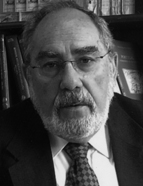

“The temptation of the world”, or the intention to write a history of the spaces and powers of the empire, attentive to ties, encounters and commercial connections, is already evident in several of Romero Magalhães’ works, even though the author never called them “Global History”. Taking into account the interpretations opened up by works such as Os Descobrimentos e a Economia Mundial (1963-1971) by Vitorino Magalhães Godinho, and the essays of António Sérgio – not forgetting the historiography of Jaime Cortesão, whom he greatly admired and studied in detail – he was concerned with ascertaining how Portuguese society in the Modern Era became commercialised at an early stage, but was not for that reason a pioneer in the processes of modernisation. It is no coincidence that this major issue and the problem of administrative and fiscal links between the central administration and the territories and borders of the empire were salient topics in the volume he coordinated of José Mattoso’s History of Portugal, significantly entitled “No Alvorecer da Modernidade (1480-1620)” (At the Dawn of Modernity (1480-1620)) (vol. III, 1993).
In this and other writings, Romero Magalhães’ historical analysis never lost sight of the structures, conjunctures, historical-geographical complexes and other heuristic categories disseminated by the Annales School. Without losing his identity as a historian, he studied economics to understand society in its seemingly immutable structures and movements of change, without losing sight of the protagonists of power and the practice of institutions. When his scope was social history , he seemed not to forget Le Roy Ladurie’s warning about the “imperialist character” of this discipline or speciality, which would tend to appropriate all aspects of history because it was closer to other social and human sciences (Duby et alia, History and New History..., 1994, p. 56). Very attentive to the new French social history and the advancement of historiography on classes and social movements in the Modern Era (Roland Mousnier and others), he paid particular attention to forms of social mobility.
This work is financed by national funds through FCT - Foundation for Science and Technology, I.P, in the scope of the projects UIDB/04311/2020 and UIDP/04311/2020.
